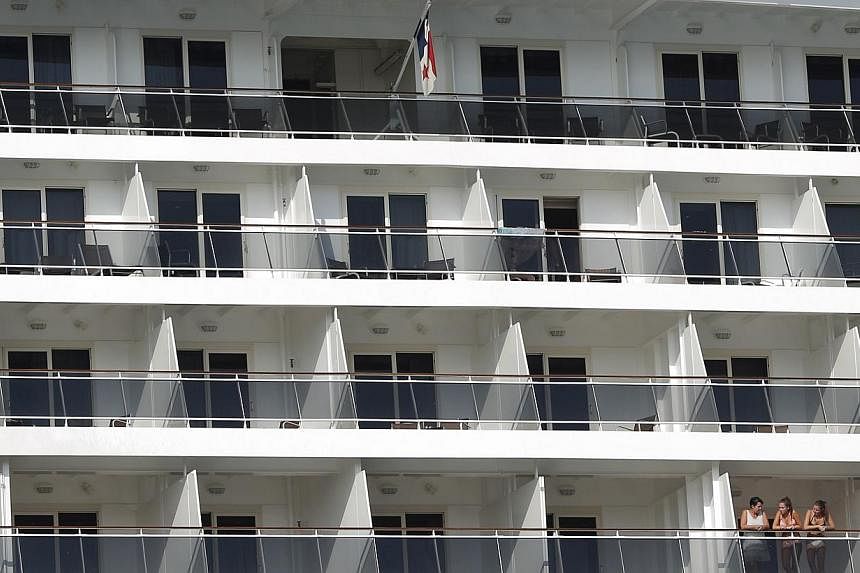MONACO - Aspiring militants, hoping to avoid tightened security at airports, have been travelling on cruise ships to reach conflict areas in the Middle East, Interpol has warned.
As cruise ships make frequent stops, the would-be militants are able to hop off undetected at any number of ports, complicating efforts to track them, the New York Daily News quoted interpol officials as saying.
The destination for many of these foreign fighters is Turkey, considered the main jump-off point for junior militants.
"There is evidence that the individuals, especially in Europe, are travelling mostly to (the Turkish coastal town) Izmit and other places" to engage in militant activities, the news website quoted outgoing Interpol chief Ronald Noble as saying.
It is unclear how many fighters have travelled on cruise ships, but Interpol officials said the phenomenon is relatively new, starting in the past few months or so.
"Originally, our concern about people on cruise ships - dangerous people on cruise ships - really focused on the classic sort of rapist, burglar or violent criminal," Noble said.
"But as we've gathered data, we've realised that there are more and more reports that people are using cruise ships in order to get to launch pads, if you will - sort of closer to the conflict zones - of Syria and Iraq."
He called on countries to step up screening at all transportation hubs - "airports and, more and more, cruise lines."
The potential for greater numbers of fighters to travel by ship has prompted Interpol to expand a pilot programme in which airlines screen passengers against the international police body's global database of stolen passports, said the report.
Interpol officials hope the system - called I-Checkit - will one day be expanded to include cruise operators, banks, hotels and other private-sector partners.
Turkish authorities say they have deported hundreds of suspected foreign militants in recent months after detaining them at airports and bus stations.
Interpol's director of counter-terrorism, Pierre St Hilaire, told Associated Press that the tightened security at airports had led prospective fighters to make alternative travel arrangements in an effort to avoid detection.
"Because they know the airports are monitored more closely now, there's a use of cruise ships to travel to those areas," he said.
BBC quoted a recent United Nations report that there were 15,000 foreign militants from more than 80 countries fighting with the Islamic State in Iraq and Syria (ISIS) and other extremist groups in Syria and Iraq.
"In order to prevent their travel and identify them, there needs to be greater information-sharing among the region, among national security agencies," St Hilaire said.
New York Daily News reported that besides travelling on cruise ships, some especially devoted ISIS followers, in a bid to steer clear of stepped-up security at airports, have driven from their homes in Europe to the Syrian border.
Many European governments have expressed concern that homegrown militants who self-radicalise online and then travel to Syria will return home with skills to carry out terror attacks.
Frenchman Mehdi Nemmouche, who allegedly spent a year in Syria and fought with ISIS, is the chief suspect in a May attack on the Jewish Museum of Brussels that killed four people.

